Some of the links in this post may be affiliate links.
Did you know that plants can increase their own humidity? Plants naturally release water, and some are better at it than others. This post will look at the results of a NASA sftudy to look at which houseplants humidify the air the best!
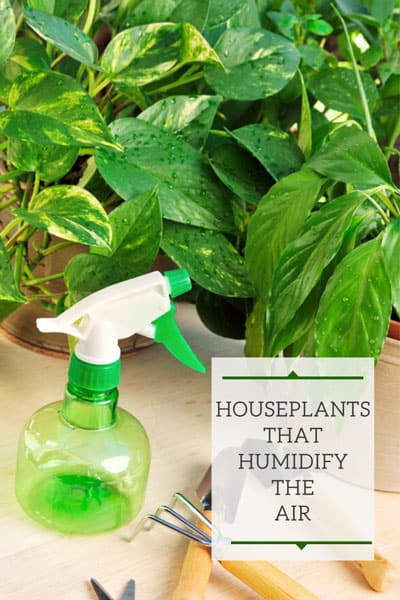
Do Plants Add Humidity to the Air?
The short answer is…yes they do! Plants add humidity to the air by a process called transpiration, where water evaporates from the leaves.
Plants only use a small percentage of water for growth and biological processes. More than 90% of water is lost through transpiration and is released into the air!
Some houseplants naturally transpire more water than others.
Houseplants That Add Humidity to the Air
Dr. B. C. Wolverton, the scientist who discovered the ability of houseplants to clear toxins out of indoor air, conducted research in order to make the air breathable in a NASA lunar habitat.
The study mainly looked at the ability of houseplants to remove many airborne toxins including formaldehyde, xylene, and other compounds that are released into the air by many household items such as carpeting, particle board, and even paper towels.
If you are interested in the easiest toxin-removing houseplants to grow from this study, check out my blog post 9 Easiest Indoor Plants for Air Purification.
From this study, I extracted just the transpiration rate for this blog post and included the results in the table below.
50 plants were studied and rated. Please note that the botanical names were taken directly from the book.
Some of these names have actually changed, but I kept the names that were published in the fascinating book, that you can purchase on Amazon, How to Grow Fresh Air by Dr. B. C. Wolverton.
I’ve read the book cover to cover and is fascinating! Brings a whole new perspective to growing plants.
Some of the plants described below are popular houseplants. Others are just seasonal plants that are just temporary “houseplants.”
Here are the 50 houseplants, ranked in descending order of transpiration rate. For plants that I have blog posts for, I’ve included a clickable link in the table.
The houseplants at the top of the list release the most water into the air (10 being the highest rate), and the houseplants at the bottom of the list release the least moisture into the air.
| NAME | BOTANICAL NAME | TRANSPIRATION RATE |
|---|---|---|
| Areca Palm | Chrysalidocarpus lutescens | 10 |
| Bamboo Palm | Chamaedorea seifrizii | 9 |
| Boston Fern | Nephrolepis exaltata “Bostoniensis” | 9 |
| Kimberley Queen Fern | Nephrolepis obliterata | 9 |
| Lady Palm | Rhapis excelsa | 8 |
| Ficus Alii | Ficus macleilandii “Alii” | 8 |
| Peace Lily | Spathiphyllum sp. | 8 |
| Florist’s Mum | Chrysanthemum morifolium | 8 |
| Gerbera Daisy | Gerbera jamesonii | 8 |
| Dracaena “Warneckei” | Dracaena deremensis “Warneckei” | 8 |
| Dwarf Banana | Musa cavendishii | 8 |
| Rubber Plant | Ficus robusta | 7 |
| Dracaena “Janet Craig” | Dracaena deremensis “Janet Craig” | 7 |
| English Ivy | Hedera helix | 7 |
| Dwarf Date Palm | Phoenix roebelenii | 7 |
| Corn Plant | Dracaena fragrans “Massangeana” | 7 |
| Golden Pothos | Epipremnum aureum | 7 |
| Dragon Tree | Dracaena marginata | 7 |
| Syngonium | Syngonium podophyllum | 7 |
| Dumb Cane | Dieffenbachia “Exotica Compacta” | 7 |
| Parlor Palm | Chamaedorea elegans | 7 |
| Schefflera | Brassaia actinophylla | 7 |
| Wax Begonia | Begonia semperflorens | 7 |
| Dumb Cane | Dieffenbachia camilla | 7 |
| King of Hearts | Homalomena wallisii | 7 |
| Prayer Plant | Maranta leuconeura “Kerchoveana” | 7 |
| Anthurium | Anthurium andraeanum | 7 |
| Weeping Fig | Ficus benjamina | 6 |
| Lacy Tree Philodendron | Philodendron selloum | 6 |
| Norfolk Island Pine | Araucaria heterophylla | 6 |
| Chinese Evergreen | Aglaonema crispum “Silver Queen” | 6 |
| Peacock Plant | Calathea makoyana | 6 |
| Red Emerald Philodendron | Philodendron erubescens | 5 |
| Elephant Ear Philodendron | Philodendron domesticum or Philodendron tuxla) | 5 |
| Oakleaf Ivy | Cissus rhombifolia “Ellen Danika” | 5 |
| Lily Turf | Liriope spicata | 5 |
| Dendrobium Orchid | Dendrobium sp. | 5 |
| Spider Plant | Chlorophytum comosum “Vittatum” | 5 |
| Croton | Codiaeum variegato pictum | 5 |
| Pointsettia | Euphorbia pulcherrima | 5 |
| Dwarf Azalea | Rhododendron simsii “Compacta” | 5 |
| Cyclamen | Cyclamen persicum | 5 |
| Heart-Leaf Philodendron | Philodendron exycardium | 4 |
| Christmas and Easter Cactus | Schlumbergera bridgesii: Schlumbergera rhipsalidopsis | 3 |
| Tulip | Tulipa gesneriana | 3 |
| Moth Orchid | Phalaenopsis sp. | 3 |
| Snake Plant | Sansevieria trifasciata | 2 |
| Aloe Vera | Aloe barbadensis | 2 |
| Urn Plant | Aechmea fasciata | 2 |
| Kalanchoe | Kalanchoe blossfeldiana | 2 |
Humidity and Houseplants
Grouping many houseplants together, especially ones that have high transpiration rates, will create a more humid microclimate.
Pretty cool right? Of course you’d need a lot of plants for this to happen, but it is possible.
There are a few ways to increase humidity for your plants in your home. In the blog post I just linked to, I also talk about my absolute favorite humidifier that I use in my own home so be sure not to miss it!
I’ve tested many humidifiers and I found a tremendous one!


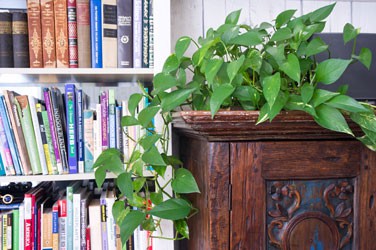
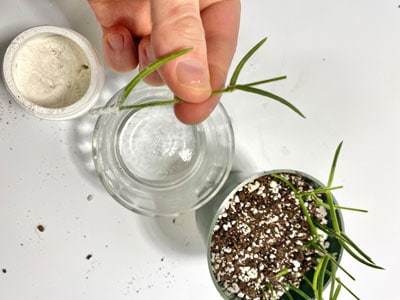
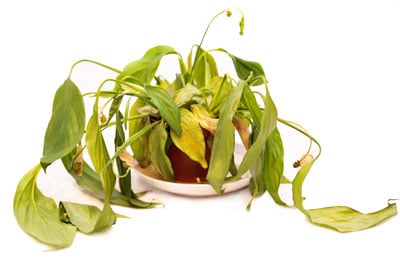
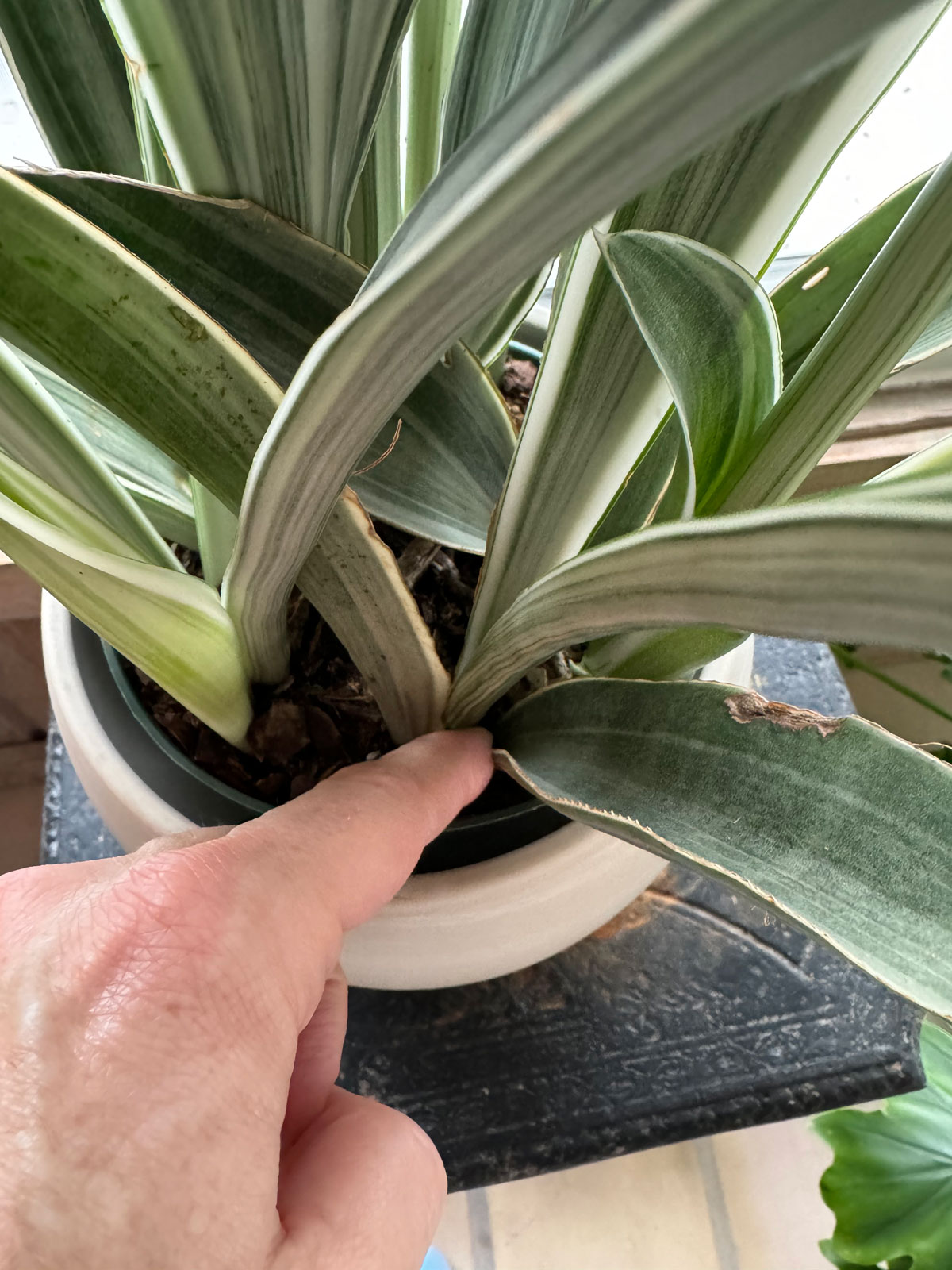
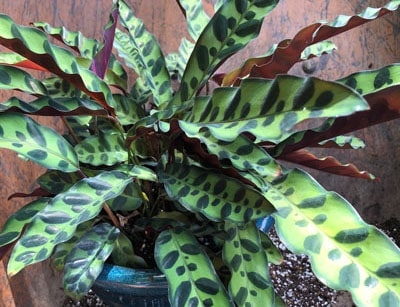
Fred
Friday 29th of October 2021
Uhh so snake plants, english ivy, and aloe vera really increase humidity levels? I'm so confused because other sources tell me that these plants decrease humidity in the air. Please help me because this is very confusing to me. Thanks in advance!~
Raffaele
Saturday 30th of October 2021
Virtually all plants that we commonly grow indoors add moisture to the air through transpiration, but some do so more than others. The data in this post was taken directly from a NASA study. What sources have you seen that tell you otherwise? You have me curious now.
kylo Succapunch.com
Thursday 23rd of January 2020
So many great plants here except Tillandsia??? Air plants are one of the greater purifiers in the home because they derive all their nutrients from the air and thus, make great purifiers!
Petru
Thursday 28th of April 2022
@Raffaele,
Unfortunately plants don't purify the air almost at all... The NASA study has been interpreted in the wrong manner for such a long time. In the study, ventilators were placed against the soil, in which the plants were plantev and it was this soil that was doing the filtering, not the plant itself.
Raffaele
Thursday 23rd of January 2020
I only included whatever was published in the study, but all plants will purify the air to some extent! :-)